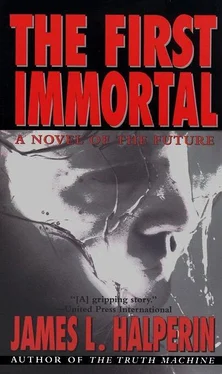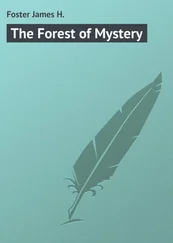Finally, Ben read about the Phoenix’s emergency transport teams and suspension procedures. Although their scientists and technicians were portrayed as zealously dedicated to protecting the structural integrity of every patient’s brain, the descriptions of individual cases were less than reassuring. Five of the Phoenix’s fourteen current suspendees had died suddenly, resulting in severe, protracted, and most likely irreversible ischemia—cell damage from inadequate blood flow. These patients had been suspended anyway, but their prognosis for successful revival appeared at best bleak.
But the very fact that the Phoenix’s own literature painted an often gloomy picture made them seem more trustworthy. It was apparent to Ben that this was no scam. Right or wrong, these people were true believers.
According to the literature, most members bought a life insurance policy to fund their suspensions, even those who could afford to pay in advance. The Phoenix charged $75,000 for a full-body freeze and storage, or $30,000 for “neurosuspension,” that is, only the head: expensive, but the fee covered maintenance in perpetuity. And by purchasing a $75,000 life insurance policy to cover the onetime fee, at his age a full-body would only set him back about $900 per year—$600 for the insurance policy, plus $300 annual membership dues.
In real money, that was a hell of a lot less than seventy-five grand. No wonder most everyone funded with insurance, Ben mused.
He also understood the logic behind neurosuspensions: Any science that could restore a dead brain to life could easily replace the rest of the body as well. But still, he had trouble with the concept of discarding his own body. If he did it at all, he’d opt for the full-body suspension.
Now Ben was amazed; he was actually considering this!
Most of his mind doubted the potential efficacy of cryostasis revival. But Ben’s natural hopefulness gradually overtook his skepticism. Sure it was a gamble, but the payoff was huge.
The future might be incredible, he thought. In most ways, the average person already lived better than royalty had just a few hundred years before. Hell, a century ago even kings had often suffered from head lice.
He considered all the advancements that the richest people in the 1800s lacked, all taken for granted today: instant long-distance communication, rapid travel, mobilized fire and police departments, weather forecasts, indoor plumbing, contact lenses, many forms of insurance, air-conditioning, antibiotics, painless dentistry. The list seemed to go on forever. Imagine living without those things!
And what would the world be like a few hundred years hence?
Inexpensive hypersonic travel, powerful watch-sized computers, more uniform and reliable justice, perfect health for all, machines to do all mindless work, more efficient and individualized education. People might pity those who had to withstand life in the twentieth century. And why not? That had certainly been true of every successive century since the end of the Dark Ages. Maybe the human race had barely begun to live!
He pictured himself awakening in a century or two or ten, healthy, even restored to youth, yet perhaps unsuited to tomorrow’s world.
How would he adapt?
Then he thought about his own grandparents who’d immigrated to America from Italy, unable to speak a word of English. They’d adjusted well enough, and so would he. Rather than face death, Ben Smith preferred to live in any world that wanted him.
Once committed, he found that filling out the paperwork became surprisingly easy. It was a matter of context. He’d asked himself if he would invest less than one percent of his net worth for a small chance to glimpse—no, inhabit—the world a century or more into the future. When he considered the question in those terms, the answer became obvious.
Since he could easily afford it, Ben even decided to pay in advance: to save time, and to get it done before he could change his mind. Writing the check was effortless.
He imagined a second chance at life, knowing everything he knew now; an opportunity to use the wisdom he’d gleaned from all his mistakes. Even a tiny likelihood of such a prize was worth a hell of a lot more than $75,000. As he sealed the envelope, a far more revealing thought bubbled up in his consciousness: Regardless of the odds, how much was the hope this decision provided him worth? Seventy-five thousand dollars: the difference between dread and hope? What a bargain!
January 17, 1983
Twentieth-century trust and estate law was an interesting business; its practitioners functioned in a perpetually dualistic world. Entering a law office for the purpose of drafting or altering one’s last will and testament, you were likely to encounter an extremely personable, competent lawyer, who, upon conclusion of the work, would present you with a surprisingly reasonable bill. Trust and estate lawyers, like most morticians and fine art auctioneers, tended to be “professional nice guys” whose short-term goal was to become your friend. But their perspective was long-term indeed—and cold-blooded; they would invest in relationships, intending to cash in after you were dead.
Patrick Webster’s suite was small and cluttered, but his sixth-floor window afforded a fine view of Quincy Market. The offices of Fialkow, Webster, Barnes & Zeeve weren’t as posh as those at Hale & Dorr or Foley, Hoag & Eliot, or any of the other frontline Boston law firms, but the location was ideal. It was lunch hour and Faneuil Hall teemed with secretaries and salesmen, college kids and attorneys. The sun was shining; nearly all the snow had melted.
They sat at a small table near the window. “I sent the Phoenix $75,000 for the procedure a couple weeks ago,” Ben said.
He did not mention his concerns about cryonics, his fear of cramped spaces and lack of control, or his claustrophobia. Ben didn’t know Webster well enough to confide in that way; this fellow was his lawyer, not his shrink.
“What exactly do they freeze?” Webster asked gingerly, his expression neutral.
Ben looked at the craggy face of the man sitting across from him and thought Pat Webster would look natural in prizefighter trunks. “My body. I thought I made that clear.”
“The whole thing, right?”
Ben suppressed a chuckle. “Yes.”
“Thank God! I was afraid you might be one of those crazies who just have their heads frozen.” Webster rolled his eyes.
“I considered it,” Ben said, rejecting Webster’s not so subtle invitation to share in his ridicule. “Probably just as sensible as what I’m doing.”
“Oh. Well, I guess I really don’t know very much about it.”
“No sweat,” Ben told the lawyer. “Anyway, I have about twelve million left. I’d like to leave a few million to be divided among my kids and grandkids. But if I’m revived after being frozen for a couple of centuries, I don’t imagine I’ll be able to support myself and my family right away. We’ll probably need money, at least until I can learn a skill that’s of some use to the goddamn Jetsons.”
Webster chuckled softly.
“I don’t blame you for laughing,” Ben said. “That’s why I haven’t told anyone else. I suppose I should be grateful for the attorney-client privilege, or I could become a laughingstock of the whole Boston medical community.”
“I didn’t mean it like that,” Webster said, his face suddenly reflecting gravity and respect. “I was only amused by your reference to the Jetsons.”
Ben understood: Webster’s very-well-paying job was to represent clients, and to help them navigate the legal system to get what they wanted, not to question those wishes; even so bizarre a request as this.
“The circumstances are that you’d be legally dead,” the attorney continued. “A dead person can’t own property. You do understand the finality of that, don’t you?”
Читать дальше












